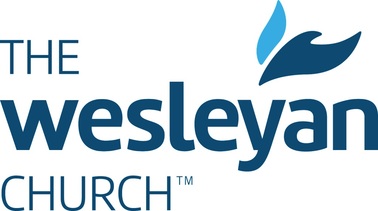
WHAT DO WESLEYAN'S BELIEVE?
As Wesleyans we are part of a denomination that upholds the Bible as God’s word and adheres to all its teachings. The scriptures are the foundation for what we believe…
As Wesleyans we are part of a denomination that upholds the Bible as God’s word and adheres to all its teachings. The scriptures are the foundation for what we believe…
- We believe in one God, three persons of one substance; Father, Son and Holy Spirit.
- We believe in the divine nature of Jesus Christ, who was both fully God and fully man.
- We believe in the Holy Spirit who lives within us, giving us the power to live a holy life.
- We believe the Holy Bible is the inspired Word of God, infallible and without error.We believe that man was created in God's image, but because of Adam's sin is depraved.
- We believe that Christ died on the cross so that by faith in Him we are given salvation.
- We believe that good works show evidence of our faith in Christ.
- We believe that sanctification is the work of God in the life of the believer.
- We believe the Holy Spirit gives spiritual gifts to all believers for edifying the Church
- We believe in the sacraments of the Lord's Supper and Baptism.
- We believe in the personal return of Christ to receive His believers into eternal life.

How Did The Wesleyan Church Come to Be?
(by Jim Garlow)
In the 1700's, Christianity experienced a vital and dynamic movement that swept across England. This awakening was largely the result of the labors of a few men, especially John Wesley, Charles Wesley, and George Whitefield. It was the eighteenth century English revival under the work of John Wesley that would eventually give birth to the Wesleyan movement.
John Wesley, born in 1703 in Epworth, England was not always a man who enjoyed a personal, saving knowledge of Jesus Christ. In spite of the fact that he was already an ordained minister and had also served as a missionary to America, it was not until May of 1738 while attending a small Bible study on a street called Aldersgate in London, England that he "felt his heart strangely warmed" by the assurance of personal salvation while someone was reading from the Preface of Martin Luther's Commentary on the book of Romans. He then discovered that sanctification (growth that comes after one's conversion) and a life of holiness was also received by faith. Rejecting some of the Calvinism (the teachings of a man named John Calvin who had lived and pastored in Geneva, Switzerland in the 1500's) of his day, he emphasized four great biblical truths:
The movement, known as Methodism, spread across the British Isles, and Wesley traveled thousands of miles a year to keep in touch with the congregation. His concern for the common people led him to help the needy, provide medical aid, establish a lending fund, start schools and encourage Methodists to vote. His influence helped regulate child labor and end slavery. In the 1760's, Methodism was carried to the American colonies and less than one hundred years later the Wesleyan Methodist movement began.
The early American Methodists (as Wesley's followers were to be called) were largely faithful to Wesley's emphasis on doctrine and Christian conduct. It was not long until many within the church began to feel that the social issue of slavery could not be condoned in the light of the teachings of Jesus Christ. As this opposition to slavery became more pronounced in the North, reform movements began. It was in the midst of the agitation for the abolition of human slavery that the Wesleyan Methodist Church of America was born in Utica, New York in 1843. It was a reform movement led by courageous men, chief of whom was Orange Scott (1800-1847), who would not be intimidated into silence on a moral issue. The new organization was called "The Wesleyan Methodist Connection of America."
The Wesleyan Methodist Connection of America and the Pilgrim Holiness Church were united to form the Wesleyan Church. Our denomination has over 3,000 churches in nearly every state of the union and divided into 39 districts. Our commitment is to Jesus Christ and the Great Commission (Matthew 28:19-20)
Matthew 28:19-20
Therefore go and make disciples of all nations, baptizing them in the name of the Father and of the Son and of the Holy Spirit, and teaching them to obey everything I have commanded you. And surely I am with you always, to the very end of the age.
For more information about our denomination, the Wesleyan church, go to www.wesleyan.org
(by Jim Garlow)
In the 1700's, Christianity experienced a vital and dynamic movement that swept across England. This awakening was largely the result of the labors of a few men, especially John Wesley, Charles Wesley, and George Whitefield. It was the eighteenth century English revival under the work of John Wesley that would eventually give birth to the Wesleyan movement.
John Wesley, born in 1703 in Epworth, England was not always a man who enjoyed a personal, saving knowledge of Jesus Christ. In spite of the fact that he was already an ordained minister and had also served as a missionary to America, it was not until May of 1738 while attending a small Bible study on a street called Aldersgate in London, England that he "felt his heart strangely warmed" by the assurance of personal salvation while someone was reading from the Preface of Martin Luther's Commentary on the book of Romans. He then discovered that sanctification (growth that comes after one's conversion) and a life of holiness was also received by faith. Rejecting some of the Calvinism (the teachings of a man named John Calvin who had lived and pastored in Geneva, Switzerland in the 1500's) of his day, he emphasized four great biblical truths:
- Salvation was provided for all men. (Calvin said it was only for a few)
- Salvation was provided for all sin.
- Salvation was certified by the personal witness of the Holy Spirit.
- Salvation was received by faith.
The movement, known as Methodism, spread across the British Isles, and Wesley traveled thousands of miles a year to keep in touch with the congregation. His concern for the common people led him to help the needy, provide medical aid, establish a lending fund, start schools and encourage Methodists to vote. His influence helped regulate child labor and end slavery. In the 1760's, Methodism was carried to the American colonies and less than one hundred years later the Wesleyan Methodist movement began.
The early American Methodists (as Wesley's followers were to be called) were largely faithful to Wesley's emphasis on doctrine and Christian conduct. It was not long until many within the church began to feel that the social issue of slavery could not be condoned in the light of the teachings of Jesus Christ. As this opposition to slavery became more pronounced in the North, reform movements began. It was in the midst of the agitation for the abolition of human slavery that the Wesleyan Methodist Church of America was born in Utica, New York in 1843. It was a reform movement led by courageous men, chief of whom was Orange Scott (1800-1847), who would not be intimidated into silence on a moral issue. The new organization was called "The Wesleyan Methodist Connection of America."
The Wesleyan Methodist Connection of America and the Pilgrim Holiness Church were united to form the Wesleyan Church. Our denomination has over 3,000 churches in nearly every state of the union and divided into 39 districts. Our commitment is to Jesus Christ and the Great Commission (Matthew 28:19-20)
Matthew 28:19-20
Therefore go and make disciples of all nations, baptizing them in the name of the Father and of the Son and of the Holy Spirit, and teaching them to obey everything I have commanded you. And surely I am with you always, to the very end of the age.
For more information about our denomination, the Wesleyan church, go to www.wesleyan.org